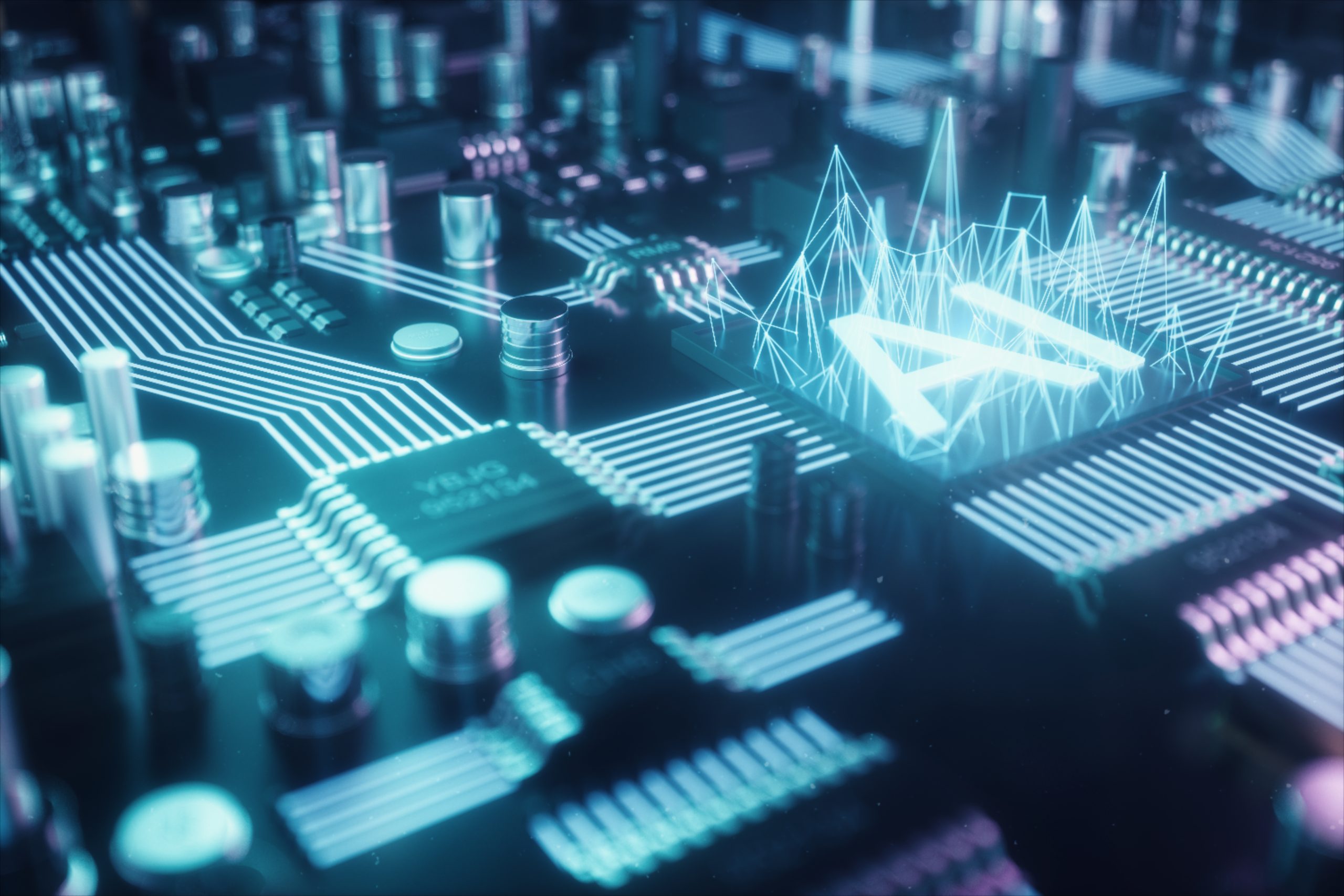The electronics industry earned its long-standing reputation for innovation by embracing new technology trends and making these new technologies more available to the public. The industry’s work advanced computer hardware component design and led to more sophisticated enhancements for ‘smarter’ smartphones and devices. The electronics industry remains at the forefront of new technology, embracing artificial intelligence and machine learning capabilities. Today, electronics manufacturers and distributors demonstrate the myriad benefits of AI and machine learning, catalyzing change across other industries as well.
AI plays a significant role across the electronics industry at every level. From conceptualizing to manufacturing new electronic components and even how manufacturers and consumers use electronic components, AI continues transforming electronic devices.
Related: Protect Your Business From the Costs of Counterfeit Electronics
What makes artificial intelligence technology so intelligent?
Machine learning and artificial intelligence technologies owe their “intelligence” to mathematical algorithms.
A mathematical algorithm is a set of mathematical instructions enabling systems or machines to perform intelligent tasks without explicit, step-by-step human interaction or guidance. Additionally, algorithms provide different capabilities and incorporate various technology systems. Some algorithms incorporate machine vision while others facilitate recognition.
AI algorithms used by the electronics industry center around solving problems. Key focus areas include improving electronic device and component design, enhancing quality control, and optimizing predictive maintenance. Electronics manufacturers and distributors also tap AI tools to enhance customer service and improve supply chain management outcomes.
A vast number of AI algorithms currently power machine learning capabilities throughout the electronics industry. Many of these algorithms fall into one of the categories below:
- Machine learning algorithms These algorithms analyze large amounts of data to identify patterns and make predictions. Machine learning algorithms optimize manufacturing processes, identify product defects, and predict when a device is likely to fail.
- Deep learning algorithms These algorithms are a subset of machine learning algorithms that use neural networks to analyze complex data. Deep learning algorithms improve image and speech recognition in devices such as smartphones and home assistants.
- Genetic algorithms These algorithms optimize electronic product design. By simulating natural selection, genetic algorithms define ideal design parameters for a given electronic component or product.
- Reinforcement learning algorithms These algorithms teach machines to make decisions based on trial and error. In the electronics industry, reinforcement learning algorithms optimize energy consumption in devices and improve the performance of control systems.
If you’re looking for B2B components and parts then search over 2 billion products from many sources here!
Smarter Electronic Products Through AI
Leading electronics manufacturers such as Hitachi, Mitsubishi, and Samsung use AI and machine learning tools in advanced research and development projects. Their research focuses on machine vision, audio processing, and voice recognition for more responsive electronic components and devices.
Researchers at Colorado University Boulder leverage artificial intelligence technologies to improve electronic component performance at an atomic level. One study focused on developing methods to identify weak points in electronic component design. This research could save manufacturers significant time and money by identifying potential device failure before devices even hit the assembly line. Information gathered could revolutionize the design and manufacturing of electronic components and electronic devices. Furthermore, researchers anticipate their results could eliminate waste and extend the life expectancy of electronics.
Machine learning algorithms and artificial intelligence tools also improve product design to align more closely with user needs and feedback. Machine learning algorithms analyze customer data and feedback, identifying areas for improvement in existing products and providing insights for new product development.
Related: Importance of Cyber Security for Every Business
Improving Product Quality and Maintenance with AI
AI improves quality control practices in electronics manufacturing, quickly identifying defects in electronic components during production. These systems and tools automate high-precision inspection processes. Enhanced precision and speed of these systems and tools support more efficient manufacturing and improve manufacturing throughput, offering electronics manufacturers and distributors a unique cutting edge over their competition.

Foxconn Interconnect Technology (FIT) quickly embraced AI capabilities to improve quality control and manufacturing efficiencies. FIT’s parent company Foxconn is one of the world’s largest electronics manufacturers, manufacturing 40% of all consumer electronics worldwide. FIT developed convolutional neural networks to identify defects in 10 different component categories. Scientists with this project continue to improve inspection capabilities, using data from industrial cameras to refine system algorithms and improve precision and accuracy in the inspection process.
FIT deployed AI-powered inspection systems in 2018 to address the growing shortage of trained quality control inspectors. Of particular note, the company’s goal to expand AI-powered inspection systems to 30% of its production lines within that year did not replace human workers. Instead, Foxconn developed its artificial intelligence inspection strategy so that expert quality control technicians could focus on more valuable quality assurance positions.
If you’re looking for B2B components and parts then search over 2 billion products from many sources here!
Smart Manufacturing with Machine Learning and AI
In addition to enhanced quality control processes, AI promises to improve manufacturing efficiencies at the production level.
Machine learning algorithms improve manufacturing efficiency, minimize production downtime, and improve production rate. This technology better predicts the preventative maintenance needs of production equipment, extending the life of manufacturing systems.
Insights provided by machine learning tools help schedule preventative maintenance tasks to optimize production time. Additionally, consistent use of these capabilities reduces unplanned downtown and outages, heading off major equipment malfunctions and saving manufacturers incredible time and money.
Related: Innovating For the End: Recyclable Electronics Combats E-Waste
Enhanced Predictive Capabilities For Supply Chain Optimization
AI tools help electronics manufacturers and distributors optimize supply chains through advanced predicting capabilities. Algorithms power more insightful demand prediction, offering manufacturers and distributors a data-based outlook of both need and opportunity.
These same predictive capabilities also support more efficient inventory management. Algorithms capable of delivering predictive analysis of need and inventory use patterns support electronics manufacturers’ and distributors’ efforts to adopt just-in-time inventory practices that save manufacturers and distributors time and money in a highly competitive industry.
If you’re looking for B2B components and parts then search over 2 billion products from many sources here!

Mectronic has been connecting sellers and buyers for 25 years. With powerful search tools and over 2 billion products, Mectronic helps you find the B2B components you need from sources you trust. Find the parts and components you need today here!





